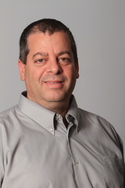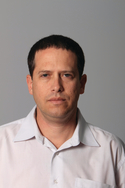Creasing and cutting goes digital with Dart
18 January 2012Highcon founders Aviv Ratzman and Michael Zimmer tell Converting Today how their Direct to Pack laser solution will bring all the advantages of digital technologies to folding carton converters
Set for its official launch at the Drupa show in Düsseldorf in May this year, Israeli company Highcon’s new Euclid cutting and creasing machine incorporates the company’s digital adhesive rule technology, Dart. Described as no less than “revolutionary” for the folding carton market, Dart creates crease lines rapidly, direct from digital data, using Highcon’s high quality laser cutting solution.
In short, Highcon says the Euclid is: “The world’s first production speed digital cutting and creasing machine”, making possible the converting of 760 x 1,060mm/B1 sheets in runs from one to 20,000 on substrates ranging from 250-550g/m².
Moving from the traditional analogue workflow to digital brings many advantages, the company says – primarily the removal of the conventional die making process, thereby dramatically reducing set-up times and the associated costs and carbon footprint of using components such as wood, metal and rubber.
Converters will therefore be able to radically improve their speed to market, meet tighter deadlines and offer much shorter run lengths, while eliminating the costs of conventional job storage.
Euclid uses a digital file to lay polymer rules onto a foil mounted on the creasing cylinder. Immediately UV-cured, the process takes about 15min, after which the second data layer controls three CO2 lasers to cut and perforate as cartons pass through the system and are stacked for despatch.
Highcon was founded in 2009 by Aviv Ratzman (CEO) and Michael Zimmer (VP R&D) who had worked together at Indigo (later HP Indigo). There they learned to understand customer requirements and observe market trends, which informed their vision and strategy for Highcon.
“There were two parts to the development of what we wanted to do,” explained Aviv Ratzman. “First, we were looking for opportunities to extend the benefits of digital technologies in the graphic arts sector. For us, there were two questions: where was the best business opportunity for introducing digital technology; and what would make the biggest impact on that sector?”
Ratzman and Zimmer saw how the digital wave had influenced the graphic arts industry: prepress was virtually fully digital; the commercial print sector, though moving to digital, was already well served by numerous suppliers and solutions. They also noted where the growth trends were.
Packaging demonstrated strong growth, and while digital inroads were being made in flexible packaging, label and even folding carton printing and converting presented a real opportunity.
“A number of ideas came together,” Ratzman explained. “First, the process for ordering and making dies was lengthy, expensive, inflexible and labour-intensive, and late changes were very costly. Secondly, we knew that the trend to bring as many services in-house as possible continued to be strong.
“Thirdly, we knew there was great value-adding potential for folding carton printers to offer a one-stop-shop service. Finally, we believed we could apply digital technologies to the process and deliver benefits to both converters and their customers.”
This analysis enabled Highcon to develop a solution that filled a real industry need, rather than impose a technology-led concept on the market. The company made a number of other strategic decisions in the development of the Euclid, including deciding to focus on the core technology, and to partner with established industry suppliers for non-core technologies.
“While at Indigo, we learned that customers were interested in complete solutions, not just in single components,” explained Michael Zimmer. “As a result, the Euclid receives printed carton blanks from any press and in a single process creases, cuts and stacks them, ready for folding and gluing machines.”
Folding carton production represents a US$40 billion part of the packaging market, and Highcon is targeting the 60% that comprises runs under 20,000 sheets per job. Though its technology is scalable, this is the “sweet-spot”.
“Sustainability is a big factor in packaging these days,” Aviv Ratzman continued. “Not only does it make good business sense to become as efficient as possible and cut waste, but it is being demanded by more and more packaging customers. The need for wood and metal die materials and associated transport and warehousing is eliminated.”
Highcon is a well-resourced company with the backing of Israbieg, Israel’s leading die supplier for the folding carton industry, and private investors including Landa Ventures (owned by Indigo NV founder Benny Landa).
The Euclid will be in action at Drupa 2012 (hall 4, stand B28) from 3-16 May.
Aviv Ratzman Aviv Ratzman Michael Zimmer Michael Zimmer External weblinksConverting Today is not responsible for the content of external internet sites.Highcon



